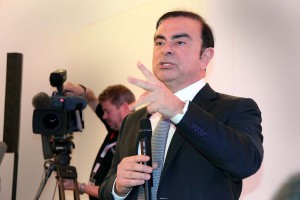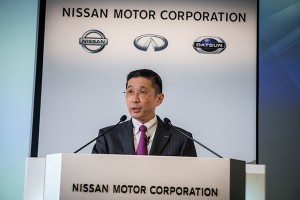
Carlos Ghosn has been ousted at Nissan and Mitsubishi, but Renault has only replaced him temporarily.
Former Nissan Chairman Carlos Ghosn is going to ring in 2019 in the same way he ended 2018: behind bars, after the Tokyo District Court extended his detention 10 days until Jan. 11.
The 64-year-old Ghosn who, according to prosecutors, committed a number of financial crimes. These initially included under-reporting about $36 million in revenue through 2015, using company funds to acquire homes in Lebanon and Brazil. He’s been in custody since Nov. 19.
Ghosn’s had additional charges filed against him since then with prosecutors alleging he shifted personal trades to Nissan to cover losses of 1.85 billion yen, or $16.6 million. They have also indicated they may bring charges for concealing income since 2015.
Under Japanese law, a suspect may be detained for up to 10 days. However, there are various loopholes that can be used to extend custody. Critics have argued that prosecutors are improperly doling out charges to retain custody, a point echoed in several recent court rulings.
(Nissan exec Kelly released; Ghosn still in Tokyo detention. Click Here for the story.)
The decision to extend Ghosn’s detention comes a day before his 10-day detention period for the latest allegation was set to expire. It also comes after the release of former Nissan executive Greg Kelly – who has been described as his co-conspirator by prosecutors – on bail last week to seek medical attention as he awaits trial.

Nissan President and CEO Hiroto Saikawa has been pushing for more independence from Renault in recent months.
The ongoing case has raised a number of questions. Among other things, some observers – including sources close to the Nissan board – have suggested the allegations against one of the industry’s most powerful executives may really be a case of corporate politics at an extreme level.
Renault effectively took control of its Japanese ally in 1999 when it spent $5 billion to rescue the near-bankrupt Nissan. It currently holds a 43.4% stake in its partner, Nissan having 15% of its French ally’s stock.
(Click Here for more about Ghosn almost winning bail as a Japanese court rebuked prosecutors.)
That has led to what many Japanese see as an uneven balance of power, among other things, Renault having the right to appoint Nissan board members and executives unilaterally. Saikawa has pressed to shift the way things operate.
George Peterson, head of consulting firm AutoPacific Inc., contends the arrests were just “a coup” meant to give Nissan a bargaining chip. Company officials insist that the charges are legitimate and emerged from a months-long internal probe initiated by a “whistleblower.”
(Ghosn scandals threatens to fracture Renault-Nissan-Mitsubishi Alliance. Click Here for more.)
Significantly, while Ghosn and Kelly have been stripped of their corporate titles by both Nissan and Mitsubishi, the third company in the alliance, Ghosn retains his post with Renault.
